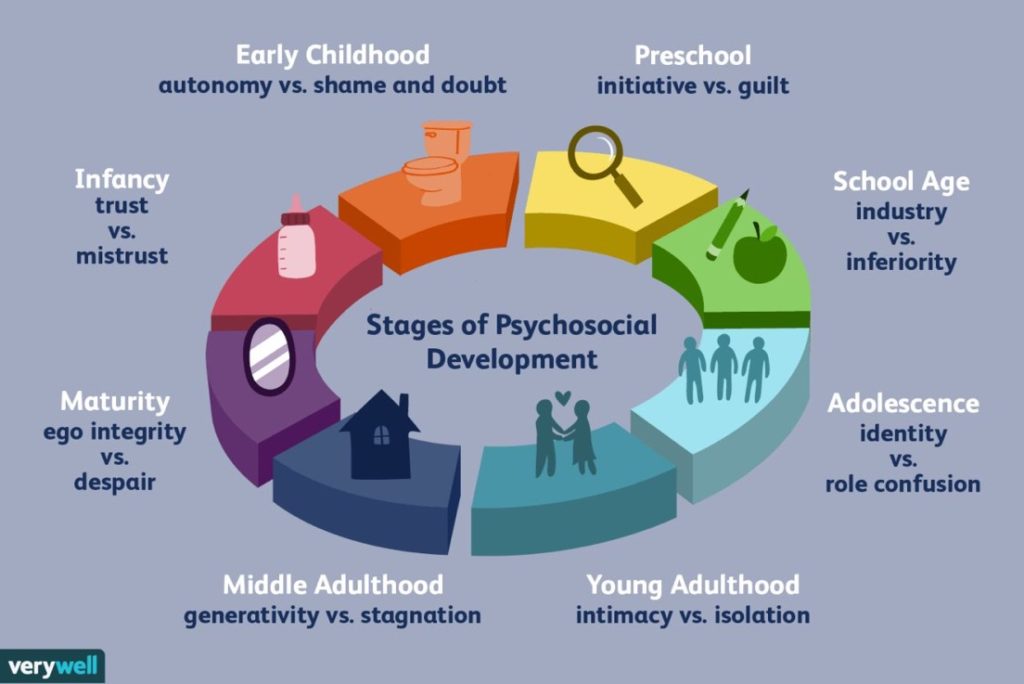As I work on my book about leadership, which will come out in 2023, I’m happy to talk with my developmental editor on a weekly basis.
He pushes my thinking, challenges my ideas, and encourages me to make sure the intersections of my writing are aligned.
The joy of letting our minds go wherever they want. Sometimes, this wandering will lead to a memory that fits with a wish, a dream, or what you want to say.
This week led me back to age 5 and what I learned from my kindergarten teacher, Mrs. Dufton.
In university, I enjoyed learning about Erik Erikson’s work on the stages of development, which is so key to understanding where we are today in the world and with ourselves.
Mrs. Dufton taught me to be independent in my thinking and my choice of work and also in which toys I was drawn to touch, learn from, and play with.
If you look at the stages of our psychosocial development, it’s fascinating to me that this model can be used in present-day leadership training in 2022.
Our life story shows how we’ve grown as people and how we’ve dealt with both good and bad things.
It is when we examine ourselves and conduct our own self-intrinsic audit of what we carry and why.
This is a conversation I have daily with leaders.
Your life shows up in your leadership.
Your leadership shows up in your life.
There is not one sector that does not have this connection because we are all human beings.
Erikson’s model from 1950 has much to teach us. When we revisit each stage of our development, we can find the strengths, weaknesses, or perhaps some shades of gray that need to be revisited.
The stages that make up his theory are as follows:
Stage 1: Trust vs. Mistrust (Infancy from birth to 18 months)
Stage 2: Autonomy vs. Shame and Doubt (Toddler years from 18 months to three years)
Stage 3: Initiative vs. Guilt (Preschool years from three to five)
Stage 4: Industry vs. Inferiority (Middle school years from six to 11)
Stage 5: Identity vs. Confusion (Teen years from 12 to 18)
Stage 6: Intimacy vs. Isolation (Young adult years from 18 to 40)
Stage 7: Generativity vs. Stagnation (Middle age from 40 to 65)
Stage 8: Integrity vs. Despair (Older adulthood from 65 to death)
Source: ttps://lnkd.in/gchE2VJf

